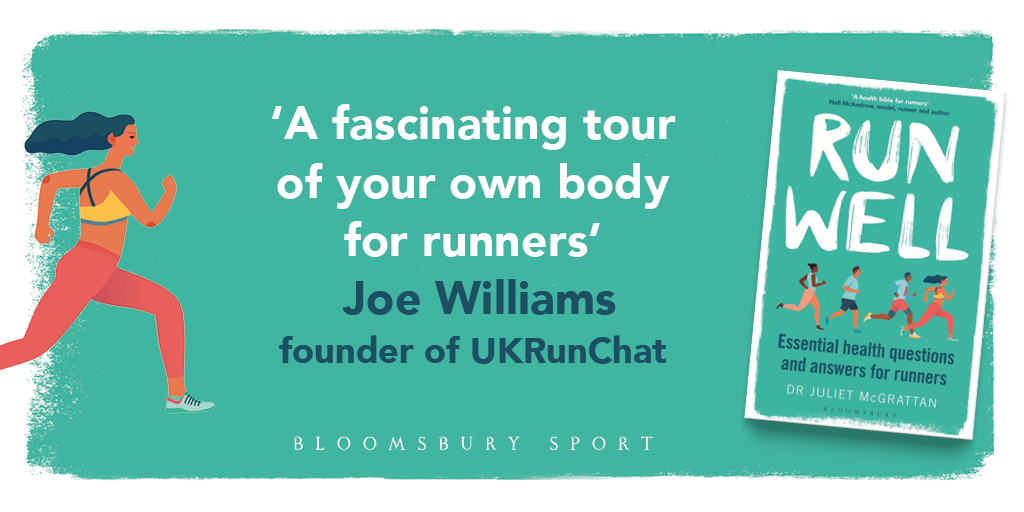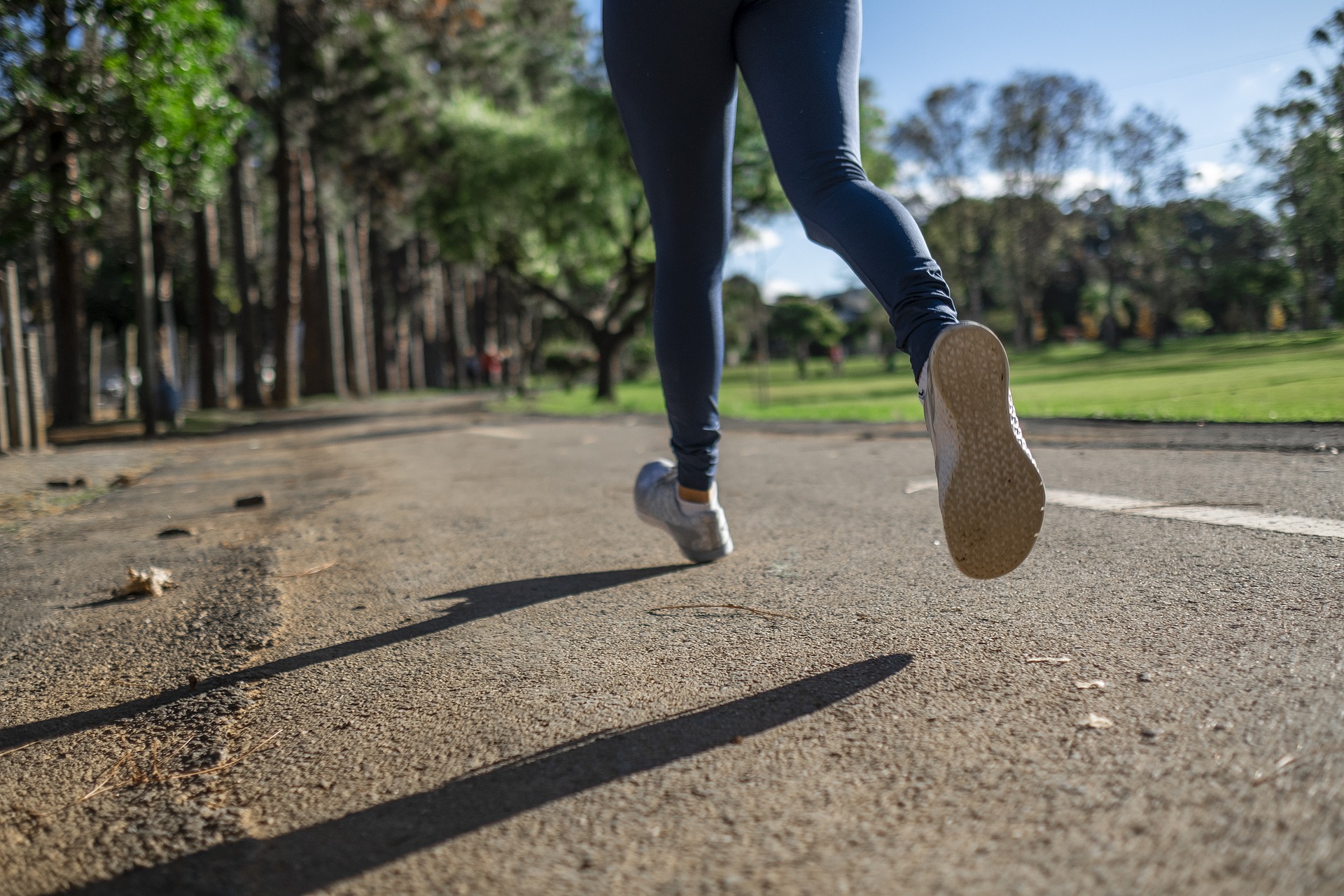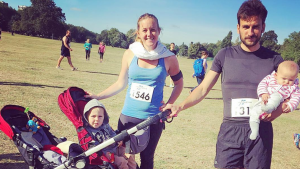Do you find the first part of your run really hard? Does it take a while before you feel comfortable? That’s certainly the case for me. No matter what distance I’m running I always find the first 10 to 15 minutes pretty awful if I’m honest. My legs feel heavy, I’m out of breath and I’m seriously questioning whether going for a run was a good idea. This is very frustrating when it’s taken a lot of motivation to get out the door in the first place! As a new runner this is incredibly off-putting. Imagine this is your only experience of running, it’s no wonder many people conclude that running isn’t for them and feel they can’t do it. But, here’s the thing, that initial struggle is entirely normal and necessary. Thankfully, you do get beyond it which is just as well otherwise I’d be hanging up my running shoes for good! Let me explain what’s happening in your body.
Our body loves homeostasis -this means a constant environment when everything is in balance and body processes can all function perfectly. When we’re resting, everything is tickety-boo. Body temperature, heart rate, breathing, all nicely working away as they should, without us being aware of them. Our body is equally, perfectly capable of running; it’s designed to move. It has an amazing capacity to pump the many litres of blood per minute that our exercising muscles require. It can cope with the increase in our body temperature by diverting blood and making us sweat and it can inhale more than enough oxygen by speeding up our breathing rate and expanding our lungs. It loves to run.
It’s the bit in-between resting and running that causes problems and because it’s so uncomfortable to experience it’s been named ‘the toxic ten’, meaning ten minutes. Others call it ‘the toxic two’ referring to the first two miles of a run. For me, if I’m honest, it’s more like the toxic twenty!
When you set out on your run, complex chemical and hormonal changes are going on in your body. When the status quo is upset, the body wants to correct it, it strives for homeostasis. Muscles need a steady supply of oxygen and when you begin running, that demand rises suddenly. There’s a period of time when your muscles are in ‘oxygen debt’, they don’t have as much as they need to perform in the way that you’re asking. They’re screaming out for more and that makes you feel awful. It might feel unpleasant but that discomfort triggers a cascade of changes which reverse it. It doesn’t take long before your heart is pumping faster and your breathing rate has increased. Muscles are receiving a larger amount of oxygen-rich blood and waste products are quickly taken away – all is well again and running feels much easier.
The toxic ten is a natural and needed part of your physiology, you can’t avoid it. People do have different experiences of it though. I was curious to find out how long other runners took before they felt they were settled into their run so I asked the question when I co-hosted the UKRunChat chat hour on Sunday evening. The overwhelming response was 10 to 20 minutes or the first mile or two of a run. A small number of runners said it takes them much longer, some doing long runs didn’t reach the feeling of being ‘in the zone’ until they’d done at least 10k. One or two said they don’t get the toxic ten at all and feel good from the off.
Interestingly, a couple of people said that they felt their runs were harder at the outset when the weather was colder and also that it had got worse with age. This makes sense when you consider it takes longer to get properly warm on a run in the cold weather and most body processes and reflexes generally slow down a bit as we get older.
So, what can you do to minimise the toxic ten. Here are my top four tips:
- Understand it – knowing what is happening and why will help you get through it. Begin to observe it rather than suffer it. Be prepared. Know it is necessary and normal.
- Warm up well – start gradually and gently prepare your body for what is to come. If you’re racing then have a good warm up run before the starting gun fires. Try a few short, sharp sprints during the last part of the warm up.
- Look for triggers that make starting to run harder for you. It might be that early morning runs are harder than after work ones. Hot weather runs might be easier for you. Learn about yourself and when you might need to warm up more or expect things to be a bit tougher.
- Think positively. Have a good attitude. Focus on the good part of the run that is to come. Distract yourself and replace negative thoughts with positive ones. Not, ‘this is awful’ but instead, ‘I’m going to feel great on this run’.
If you’re new to running then please don’t let the toxic ten put you off. It doesn’t mean you are unfit or not cut out for running. It’s normal and just your body readjusting and firing up its mechanisms to let you run. I believe you’ve done the hardest part of running when you reach 5k. When you’re ready, don’t be afraid to push past this distance, you will be amazed how once your body has adjusted, it can do so much more than you think is possible.
I’d love to hear your experiences on your runs. How long does it take you to feel comfortable and what are your tips for getting through it? You can reply in the comments below.
There are other tips like these in my new book Run Well: Essential health questions and answers for runners. Published by Bloomsbury and available to buy now.

Featured image: Daniel Reche from Pixabay








How many times have I been convinced I could not do this run, and must turn back soon, because of those first few miles, especially the first half mile? So many!
And it definitely is getting worse with age. But you know what – I just keep going, force myself. Remind myself that every single time I run I come back feeling better. Every time. And it’s pretty common for me to feel absolutely great midway through, and to be smiling to myself as I run, taking in the big skies and greenery around me.
Things that help me are getting a good podcast or piece of music for the first few miles; something I look forward to and only listen to then.
And accepting it is hard, but also knowing how much running does for my mental and physical health. How much it is part of my life. How grateful I am that I can still run.
I agree Mary, I’m so grateful I can run and getting through that first struggle is always worth it.
This is very interesting. I know my husband complains of various niggles at the start of a run, but it’s nothing something I’ve experienced myself. The only thing I notice is that when I get to around seven miles I suddenly feel like I could run forever! Although sometimes my body will remind me from around 11 miles that actually I can’t.
It’s been enlightening to hear how many new runners didn’t realise this could happen and thought they just weren’t getting any fitter. Mile 8 is my best and yes, I agree at mile 11!
It’s so nice to hear that this experience is normal! When I start a run and feel like garbage, I always tell myself I’ll feel better around minute 9 or 10, and 99% of the time I do. On longer runs I feel even better around mile 2, and sink into a meditative bliss around mile 5. Knowing all of this about myself helps me enjoy my runs so much more.
It’s amazing how many new runners say they don’t know this and feel so relieved. It’s disheartening starting every run feeling like you haven’t gained any fitness but you have!!!!